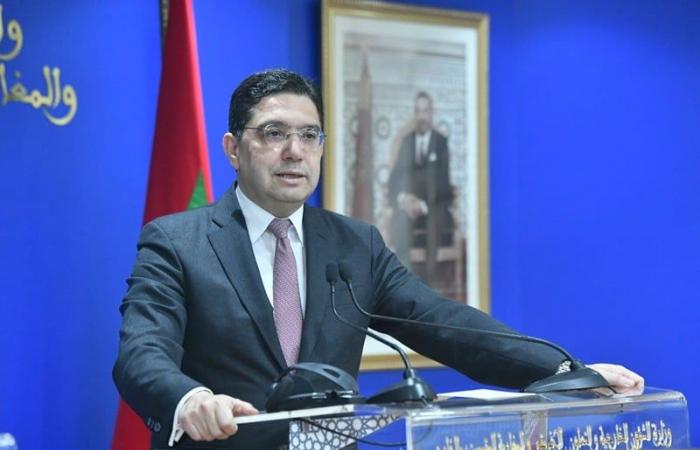The migration policy defined by His Majesty King Mohammed VI is based on shared responsibility, the fight against stereotypes and mobilization against human trafficking networks, said Tuesday in Rabat the Minister of Foreign Affairs and Cooperation African and Moroccans living abroad, Nasser Bourita, stressing that the Kingdom of Morocco has no lessons to learn and fully assumes its responsibilities in the fight against illegal immigration.
Speaking at a press briefing following his talks with the president of the regional government of the Canary Islands, Fernando Clavijo, the minister indicated that Morocco is fully fighting against this phenomenon, noting that this fight requires a multidimensional approach which includes all the elements favoring such a scourge.
For Mr. Bourita, the migration issue “is a common responsibility between the countries of origin, passage and destination”.
Referring to the media coverage of the migration issue, he recalled that it occupies a large part of the domestic political agenda in certain European countries, even establishing it as “a populist business” with an alarmist and fear-inducing discourse. .
According to the minister, Morocco has, as part of the migration policy announced by His Majesty the King in 2013, authorized the settlement in the Kingdom of 60,000 migrants.
Read also: Bourita: “The attacks against the UN Secretary General and foreign Heads of State are condemnable”
On another note, he stressed that Morocco is willing to repatriate any illegal migrant provided that he is Moroccan and has departed from Moroccan territory, while wondering if the other party is willing to do the same.
In addition, he praised Moroccan-Spanish cooperation in the field of immigration, describing it as exemplary at the Mediterranean level.
Mr. Bourita reaffirmed the common responsibility of Morocco and Spain and their desire to provide in-depth solutions to this phenomenon, by putting an end to human trafficking networks, and by strengthening the legislation governing the migration issue.
For his part, Mr. Clavijo expressed his thanks and gratitude to the Kingdom of Morocco for its sustained efforts in the fight against irregular migration.
“We are perfectly aware of the pressure and the geopolitical environment in the Sahel region. Morocco contributes to stability, peace and the fight against human trafficking networks,” he maintained.
In this sense, he affirmed that the Canary Islands government is determined to strengthen bilateral collaborative ties, specifying that clarity, sincerity and loyalty constitute the foundations of collaborative relations between the Canary Islands and Morocco.
With MAP






